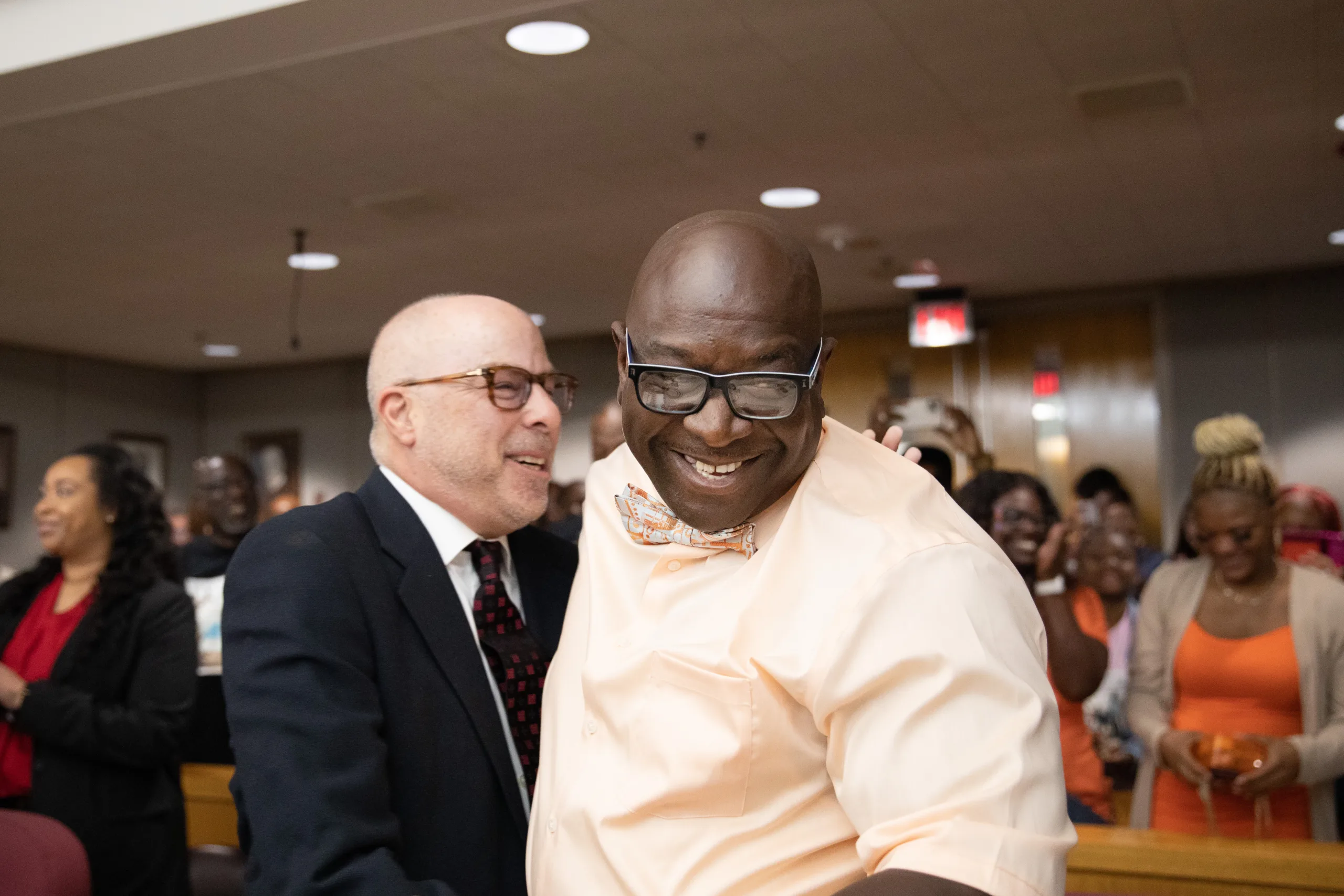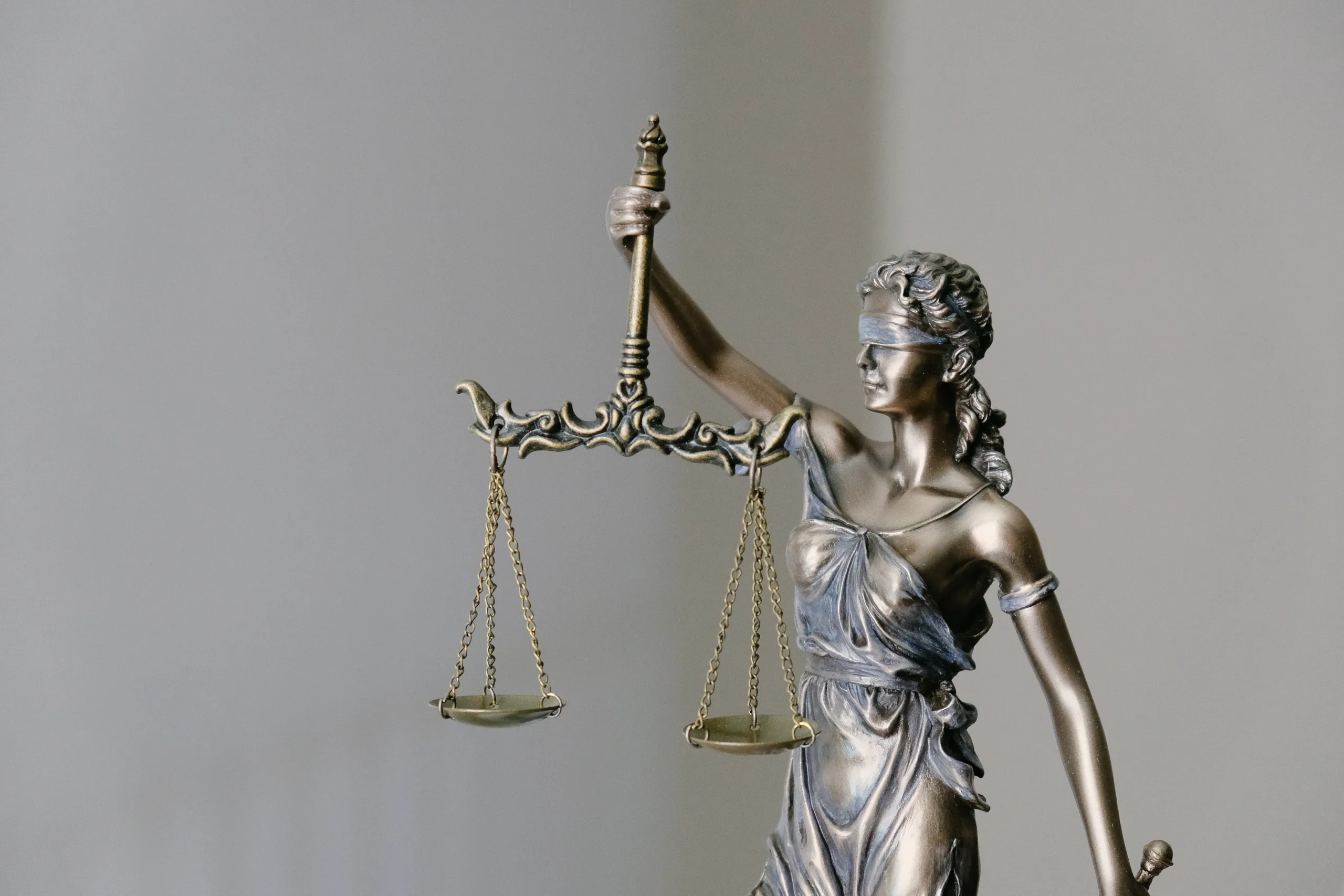Why the Trial Penalty Must Go
Faced with the threat of the trial penalty, innocent people can and do plead guilty.
Opinion 06.01.23 By Christina Swarns
When I was just starting out as a public defender, I got the opportunity to assist on a case that was scheduled for trial. Our client, who was out on bail, made it clear that he was innocent. If convicted after trial, he faced a mandatory minimum sentence involving significant prison time.
We worked incredibly long hours — researching the law, conducting investigations, and consulting with our client — and we developed a trial strategy that we believed could vindicate him.
On the morning that jury selection was scheduled to begin, we got an offer: the prosecutor announced that if our client pleaded guilty, he could be free within a year.
I vividly remember standing in the hallway of the criminal court watching our client struggle with this offer. He said he was innocent — why should he admit to something he didn’t do and go to jail? We were ready to go to trial — what was all of that work for? If we believed he was innocent, why would we urge him to plead guilty?
But my experienced colleagues were clear-eyed. They understood — and explained — the enormous risk that the trial represented, including the fact that he was a young Black man whose case would be decided by an overwhelmingly white jury.
Our client pleaded guilty.
The Sixth Amendment enshrines the right to trial for anyone accused of a crime. Yet, in America today, less than 3% of criminal cases ever make it to trial.
A lot of factors drive that statistic, including the trial penalty: the practice of offering more lenient sentences in exchange for a guilty plea before trial and promising (and imposing) severe sentences after a conviction at trial. Confronted with an impossible choice — fighting for their innocence but often risking decades in prison or admitting to something they didn’t do but salvaging their family and future — innocent people can and do plead guilty.

Tyrone Day attends his exoneration hearing in the Frank Crowley Courts Building in Dallas, Texas on May 24, 2023. (Image: Montinique Monroe for Innocence Project)
Take Tyrone Day, a client of the Innocence Project and Innocence Project of Texas, who was exonerated last week. He was wrongly convicted of a 1989 sexual assault in Dallas. On the advice of his attorney and under threat of a 99-year prison sentence, he agreed to plead guilty after his attorney incorrectly told him that he would be eligible for parole after serving four years. Mr. Day spent nearly 26 years behind bars for a crime he did not commit as a result of that plea deal.
Innocence Project re-entry coach Rodney Roberts, who was also wrongfully convicted as a result of a plea deal, described the experience as, “saving and sabotaging [myself] at the same time.”
Of the more than 3,300 people exonerated since 1989, one in four (25%) pleaded guilty. And more than 60% were people of color.

Tyrone Day attends his exoneration hearing in the Frank Crowley Courts Building in Dallas, Texas on May 24, 2023. (Image: Montinique Monroe for Innocence Project)
How Did We Get Here?
Tough-on-crime rhetoric has resulted in federal and state legislation that imposes draconian mandatory minimum sentences. These laws prevent judges from considering mitigating factors — like trauma and abuse — and imposing individualized sentences. Instead, prosecutors can unilaterally decide to file charges that require high sentences and unilaterally decide if, when, and how such charges or sentences may be reduced in plea negotiations.
Add to the mix the very rational fear of pretrial detention, which serves as an additional thumb on the scale in favor of taking a plea deal even in cases of innocence and cases in which the stakes are lower because the potential charges are not as serious. For example, when faced with the prospect of a stint in New York City’s notoriously violent jail Rikers Island, Jason Serrano pleaded guilty despite being innocent. Police body camera footage showed officers planting drugs in his car.
None of this is good for justice. A guilty plea short-circuits the process (from discovery to investigation to cross-examination) that can otherwise expose coercion, misconduct, and actual innocence. It also prevents meaningful accountability.
How Do We Fix It?
Calls for an end to the trial penalty have gained momentum across the country. We’ve joined with 24 leading national civil rights and criminal legal reform groups to form the End the Trial Penalty Coalition — a group that has developed reform recommendations and will push for those reforms at every point in the system. As members of the American Bar Association Plea Bargaining Task Force, we, along with a diverse group of fellow attorneys, judges, and academics, released a groundbreaking report earlier this year that outlines recommendations to reduce excessive plea bargaining.
In New York, we’ve helped advance truly transformational reforms. In 2019, legislators enacted pre-plea discovery measures that allowed people accused of crimes to see the evidence against them before considering a plea deal, for the first time.
That same legislative package addressed cash bail and pretrial detention to keep people out of pretrial detention facilities like Rikers, and thereby lessen the risk of false guilty pleas. Despite the fact that these reforms likely prevented an unknown number of coerced pleas and kept people safely in their communities rather than detained in dangerous jails, there have been multiple efforts to roll back these critical reforms and New York must remain ever vigilant in protecting them.
Still, there are other changes we need to drive. We need to eliminate the use of extreme sentences, including mandatory minimums; ensure prosecutors offices have ethical charging policies; give judges more discretion to “look back” and adjust excessive sentences; and remove language often used in plea agreements that requires people to waive certain legal rights. We need to get rid of charge stacking — a practice in which police officers and prosecutors level as many charges at a person accused of a crime as they can and, in turn, heighten an accused person’s anxiety and the pressure to settle. And we should close the door on “take-it-or-leave” offers where people have virtually no time to make a decision.
Without a concerted and serious approach to preserving the critical constitutional right to trial, our legal system will continue to function like a game of chance — pushing people to take a bet on the due process of law when they know that the deck is stacked against them.
With gratitude,
Christina Swarns
Executive Director, Innocence Project
The post Why the Trial Penalty Must Go appeared first on Innocence Project.
This content originally appeared on Innocence Project and was authored by Justin Chan.
Justin Chan | Radio Free (2023-06-01T17:26:20+00:00) Why the Trial Penalty Must Go. Retrieved from https://www.radiofree.org/2023/06/01/why-the-trial-penalty-must-go/
Please log in to upload a file.
There are no updates yet.
Click the Upload button above to add an update.

Leave a Reply
Thank you for visiting us. You can learn more about how we consider cases here. Please avoid sharing any personal information in the comments below and join us in making this a hate-speech free and safe space for everyone.